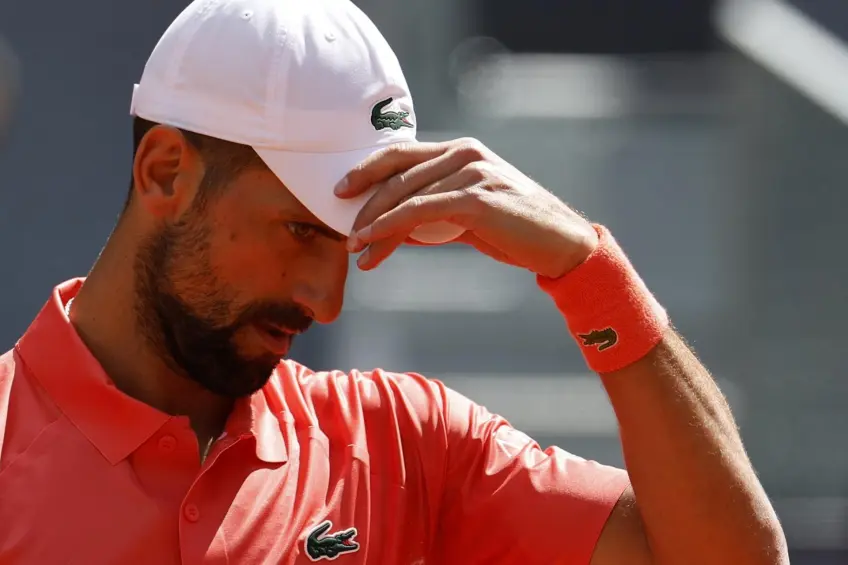
The recent Madrid Open witnessed an unexpected turn of events for the top-ranked Novak Djokovic, as he suffered a second-round defeat to the talented Italian, Matteo Arnaldi. This loss marked Djokovic’s third consecutive defeat, a relatively unusual occurrence for the seasoned champion, prompting discussions about his current form and future prospects. Adding to the analysis of his performance, a former coach of rising star Coco Gauff has weighed in on Djokovic’s recent struggles, suggesting that the relentless march of time might finally be catching up to the legendary Serb.
The coach, who previously worked with the young American sensation, offered a candid assessment of Djokovic’s performance, hinting at the inevitable impact of age on even the most exceptional athletes. While acknowledging Djokovic’s remarkable career and enduring dedication to the sport, the coach suggested that the physical and mental demands of consistently competing at the highest level might be becoming increasingly challenging for the 37-year-old.
“Father Time is undefeated,” the coach reportedly stated, invoking a well-worn adage in sports to underscore the notion that even the most dominant athletes eventually succumb to the effects of aging. This sentiment reflects a broader conversation within the tennis world, as observers and analysts attempt to understand the factors contributing to Djokovic’s recent dip in form.
Djokovic’s career has been characterized by unparalleled physical fitness, mental fortitude, and a relentless pursuit of excellence. His ability to recover from grueling matches and maintain peak performance over an extended period has been a hallmark of his dominance. However, the rigors of professional tennis, with its demanding travel schedule and intense competition, inevitably take a toll on the body.
The former coach of Gauff further elaborated on this point, suggesting that while Djokovic has defied expectations for so long, the cumulative effect of years spent at the pinnacle of the sport might now be manifesting. “We’ve seen athletes prolong Father Time like never before, and Novak has been a prime example of that,” the coach acknowledged. “But eventually, it catches up to everyone.”
This perspective does not diminish Djokovic’s past achievements or his potential for future success. Rather, it offers a realistic assessment of the challenges faced by athletes as they navigate the later stages of their careers. The coach’s comments serve as a reminder that the physical demands of elite sports are relentless, and maintaining peak performance becomes increasingly difficult with age.
The defeat in Madrid adds to a somewhat uncharacteristic season for Djokovic, who has set such high standards throughout his illustrious career. While he remains a formidable competitor and a strong contender for major titles, his recent results have raised questions about his invincibility. The coach’s analysis suggests that these struggles might not be solely attributable to temporary dips in form but could indicate a more gradual shift as Djokovic continues to battle against the natural progression of time.
Despite this assessment, it is crucial to remember Djokovic’s track record and his proven ability to bounce back from setbacks. His mental toughness and unwavering belief in his capabilities are well-documented, and he has consistently defied predictions throughout his career. Whether “Father Time” is indeed catching up remains to be seen, but the observations from Gauff’s former coach offer an intriguing perspective on the current juncture in Djokovic’s remarkable journey. The tennis world will undoubtedly be watching closely to see how the legendary champion responds to this latest challenge.
Leave a Reply